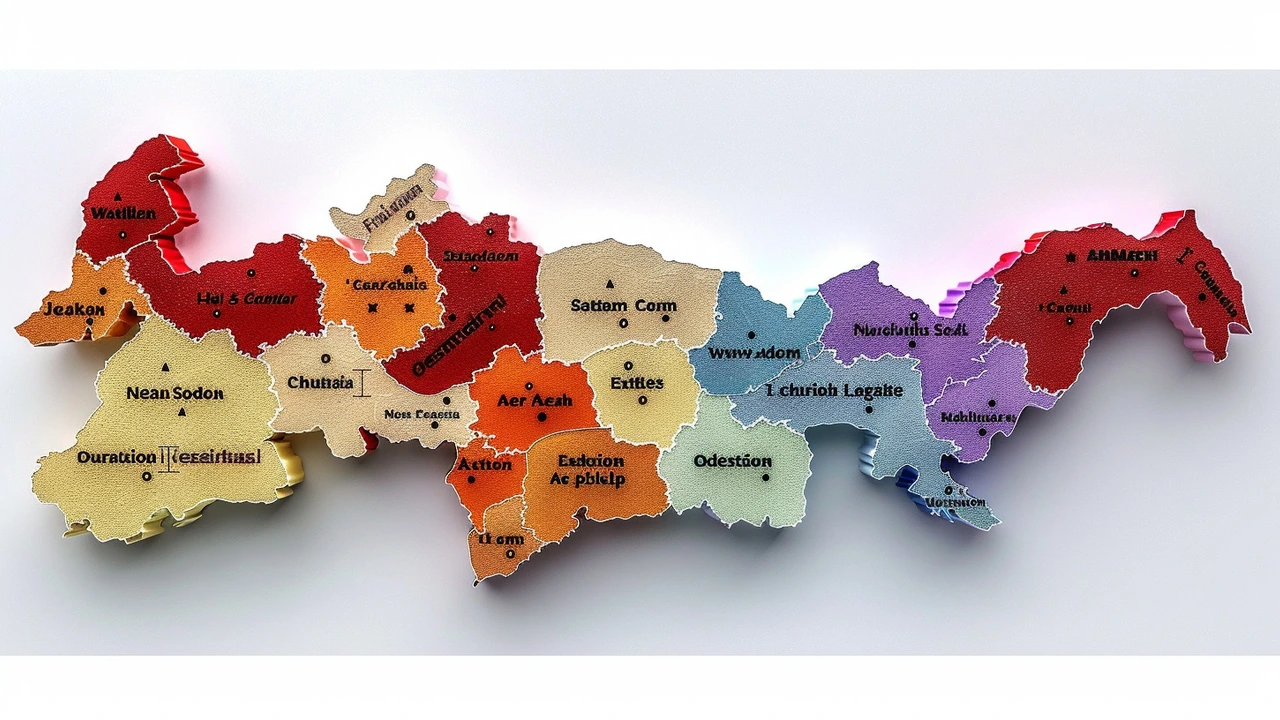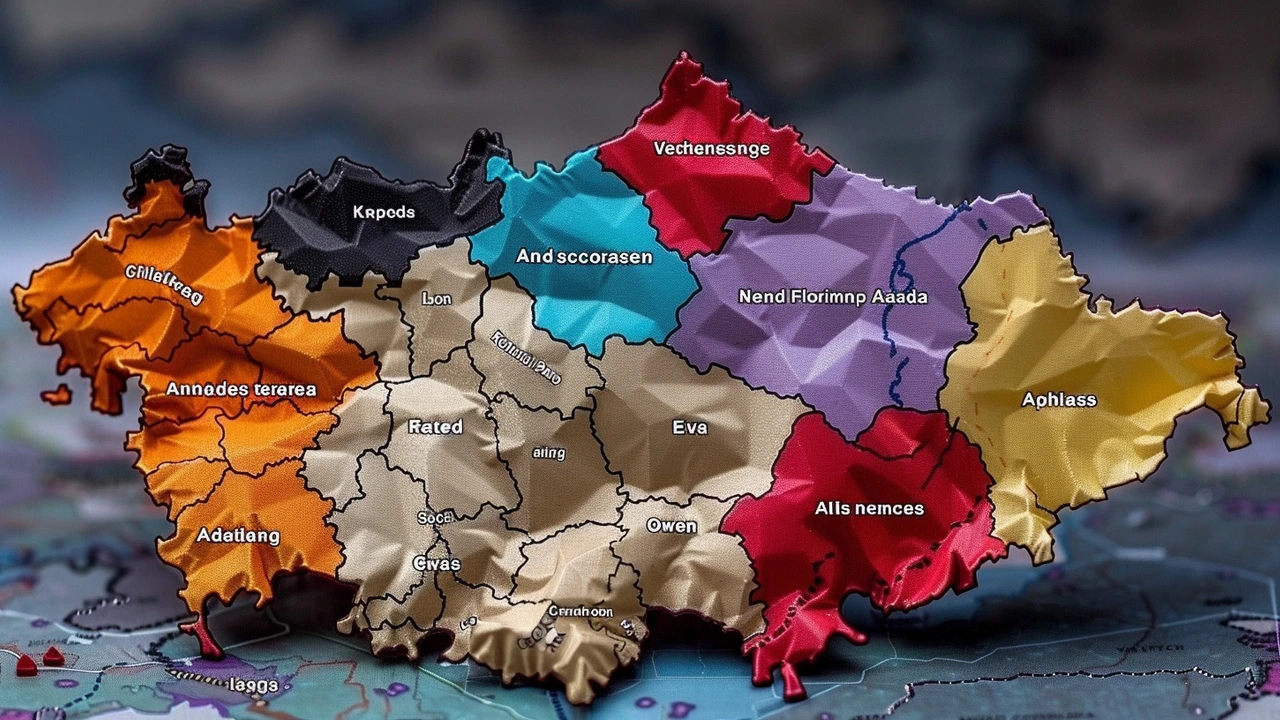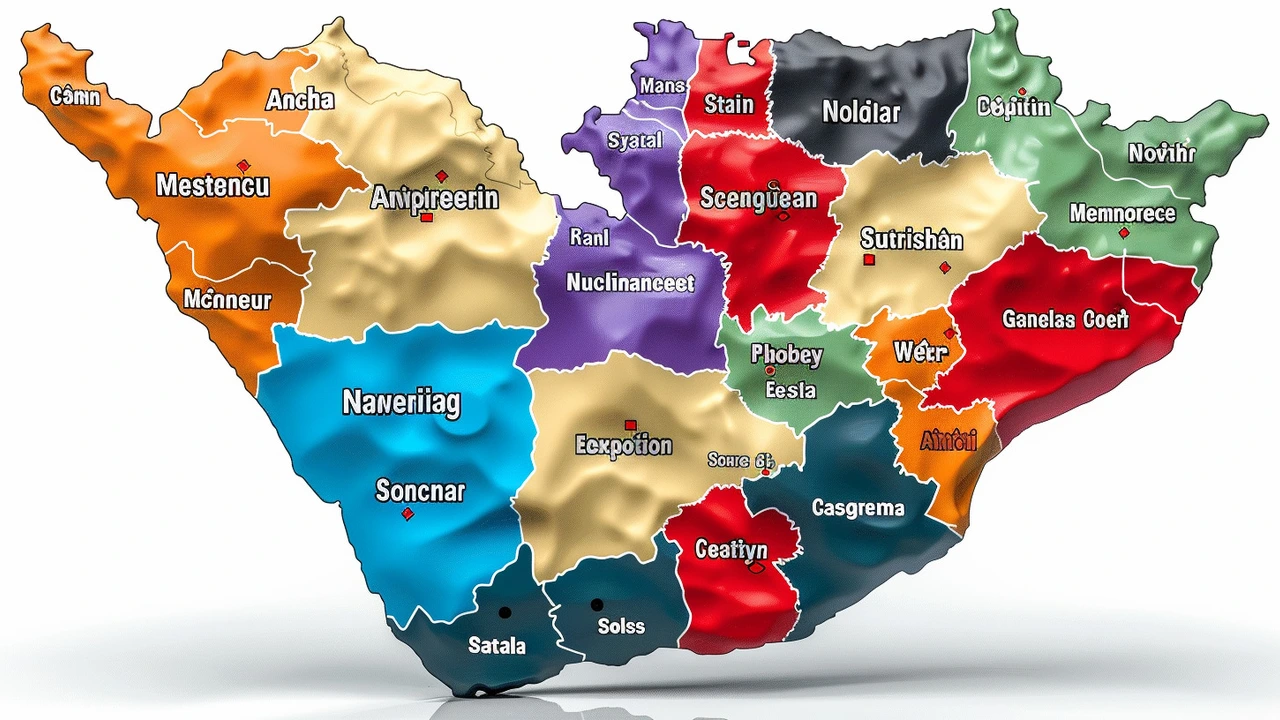A Need for Change: Fapohunda's Vision for Regional Government
Akin Fapohunda is not just any ordinary citizen. With a PhD in Agricultural Science and significant experience in Information and Communication Technology (ICT) and constitution drafting, he has a comprehensive understanding of both the technical and practical aspects of governance. With this unique perspective, Fapohunda has proposed a significant change that could reshape Nigeria's political landscape: the reintroduction of a regional government system.
According to Fapohunda, the motivation behind his proposal was inspired by recent actions of President Bola Tinubu, particularly the restoration of Nigeria's old national anthem. This act, which connects present-day Nigeria with its historical identity, suggested to Fapohunda that other aspects of the past could also be revived. He believes that by revisiting the regional governance system, Nigeria can address ongoing challenges and harness the potential for more localized and efficient governance.
The Historical Context and Potential Benefits
Nigeria's history of regional government dates back to the time before the civil war and military rule, when the country was divided into several regions, each with significant autonomy. This system allowed for tailored governance that respected the unique needs and aspirations of each region. Fapohunda argues that returning to this model could help address the deep-seated regional disparities that have long plagued the country. He envisions a more equitable distribution of resources, improved regional administrative efficiency, and a reduction in the bureaucracy that often stymies national progress.

The Draft Bill and Legislative Path
With a clear vision in mind, Fapohunda has taken concrete steps to transform his idea into reality. He has meticulously drafted a bill that outlines the framework for reintroducing regional governance in Nigeria. This draft bill will be presented to his constituency representative in the House of Representatives, a procedural necessity before it can be formally tabled. Fapohunda is optimistic that, with the right support and advocacy, his proposal will be embraced by lawmakers, both in the House of Representatives and the Senate.
Building Consensus and Overcoming Challenges
Introducing a fundamental change in governance structure is no small feat. It requires not only legislative backing but also widespread public support. Fapohunda is aware of the challenges that lie ahead. To garner support, he plans to engage with various stakeholders, including political leaders, community organizations, and ordinary citizens. His strategy involves a robust information campaign to educate the public on the benefits of regional governance and to debunk any misconceptions.
One of the key challenges is the diverse political interests that often influence legislative decisions. Nigeria's lawmakers come from various political parties, each with its own agenda and priorities. To navigate this complex landscape, Fapohunda aims to build a broad coalition of supporters who recognize the long-term benefits of his proposal. He is particularly keen on involving younger lawmakers, who he believes are more open to innovative ideas and governance reforms.
Potential Advantages for Regional Development
Reintroducing regional government holds several potential advantages for Nigeria's development. First and foremost, it would allow for more localized and context-specific policy-making. Regional governments, with their closer proximity to local issues, would be better positioned to address the unique challenges and opportunities within their jurisdictions. This decentralization of power could lead to more effective and responsive governance, enhancing the overall quality of life for citizens.
Moreover, Fapohunda argues that regional governance can stimulate economic development by fostering competition and innovation. Each region, with greater autonomy, would be incentivized to leverage its unique resources and capabilities to attract investment and drive growth. This competitive dynamic could create a more vibrant and diverse economy, reducing dependency on the central government and encouraging self-sufficiency.
The Role of ICT in Modern Governance
Given Fapohunda's background in ICT, he also highlights the role of technology in enhancing regional governance. By implementing advanced ICT solutions, regional governments can streamline administrative processes, improve service delivery, and increase transparency. For instance, e-governance platforms can facilitate better communication between government officials and citizens, making it easier to address grievances and gather feedback.
Additionally, leveraging data analytics can help regional governments make more informed decisions. By analyzing data on various socio-economic indicators, policymakers can identify trends, allocate resources more efficiently, and implement targeted interventions. This data-driven approach can significantly improve the effectiveness of governance and contribute to sustainable development.

The Road Ahead: Advocacy and Implementation
As Fapohunda prepares to present his draft bill to the House of Representatives, he remains optimistic yet pragmatic about the road ahead. He understands that significant reforms often take time and require persistent effort. His immediate focus is on building a strong case for regional governance and engaging with key stakeholders to ensure a broad base of support.
Fapohunda's journey is a testament to the power of individual initiative and the potential for citizens to influence national policy. By drawing on Nigeria's historical legacy and leveraging modern technological advancements, he presents a compelling vision for the future of governance in the country. If successful, his proposal could usher in a new era of decentralized, efficient, and responsive governance, ultimately enhancing the lives of millions of Nigerians.
Conclusion: A Vision for a United Yet Diverse Nigeria
The reintroduction of regional government in Nigeria is not just about returning to a past system; it's about adapting historical strengths to contemporary realities. Akin Fapohunda's proposal aims to create a governance structure that is both resilient and adaptable, capable of addressing regional disparities while fostering national unity. As Nigeria continues to navigate its complex socio-political landscape, innovative ideas like Fapohunda's offer hope for a more inclusive and prosperous future.

KABIR SETHI
June 1, 2024 AT 19:30Man, the whole regional government idea sounds wild but kinda makes sense when you think about how Nigeria’s so diverse. If you let regions handle their own farms and tech, you could finally get some real progress instead of endless Abuja talks. Plus, with Fapohunda’s ICT background, the e‑governance push could cut red tape big time. I’m all for giving locals more power, even if the central folks might scream about losing control. Bottom line: experiment, don’t just cling to the old ways.
rudal rajbhar
June 2, 2024 AT 19:40Reading through Fapohunda’s proposal feels like opening a philosophical treatise on federalism, where each region becomes a micro‑state within a shared Nigerian identity. He argues that the old regional model allowed for culturally resonant policies, a point that resonates deeply with anyone who’s studied the balance between unity and diversity. By decentralizing fiscal authority, regions could allocate resources to agriculture, education, and health based on local needs rather than a one‑size‑fits‑all budget dictated from Abuja. This is not mere nostalgia; it’s a pragmatic response to chronic underdevelopment in the north‑east and south‑south. Moreover, leveraging ICT, as he suggests, could create transparent budgeting dashboards that citizens can monitor in real‑time, reducing corruption. The draft bill’s emphasis on data‑driven decision making aligns with modern governance principles seen in Estonia and Singapore. If regional leaders adopt open data standards, they can benchmark performance across the country, fostering healthy competition. Yet, the political landscape will not be so forgiving-party loyalties and power brokers thrive on centralized patronage. Young lawmakers, as Fapohunda hopes, might be more receptive, but they also need party support to push legislation through committees. The challenge lies in building a coalition that transcends ethnic and partisan divides, something that has eluded many reform attempts. I’m reminded of the federalist debates in the United States, where the balance of power continually shifts through compromise and conflict. To succeed, Nigerian reformers must negotiate a new social contract that respects regional autonomy while preserving national cohesion. In practice, this could mean re‑defining revenue sharing formulas, revisiting constitutional clauses, and perhaps most controversially, redefining national identity in a more pluralistic way. Critics will claim this is a backdoor to secession, but history shows that well‑designed federalism can actually bind disparate groups together through shared governance structures. Ultimately, the proposal’s success will hinge on the ability to translate theoretical benefits into tangible improvements for everyday citizens-better roads, reliable electricity, and accessible healthcare. If those outcomes materialize, the skeptics will have to concede that regionalism isn’t a relic, but a forward‑looking strategy for sustainable development. Therefore, while the plan may appear ambitious, it is rooted in both historical precedent and contemporary technological capability, making it a compelling vision worth serious consideration.
tanay bole
June 3, 2024 AT 19:40I appreciate the thorough historical context provided; it helps frame why regional autonomy could be beneficial. The integration of ICT solutions is especially promising for improving transparency. Overall, the analysis is balanced and well‑structured.
Liz Lessner
June 4, 2024 AT 19:40Hey, great job laying out the pros and cons of regional gov’nment – really helps us see the bigger picture. I think the idea of using e‑governance could actually empower local communities, but we also need to make sure the tech is user‑friendly for everyone. Keep pushing this conversation forward, it’s super important!
Chance Remien
June 5, 2024 AT 19:40The proposal intelligently ties historical governance models with modern data analytics, which could indeed streamline decision‑making. By decentralizing authority, regions may better address specific socio‑economic challenges without overburdening the central bureaucracy. This synthesis of tradition and innovation warrants serious legislative attention.
Arjun Dode
June 6, 2024 AT 19:40Yo, this could be a game‑changer for the youth – more jobs, better services, let’s get behind it!
Anna Lee
June 7, 2024 AT 19:40Wow!! That was a solid breakdown, Chance!! I love how you highlighted the data‑driven part – it’s like giving regions a super‑power!!! Also, making tech easy for folks is key – no one wants a confusing app!!! Keep the vibes high!!
Mayank Mishra
June 8, 2024 AT 19:40Look, I get the optimism in the long post, but we can’t ignore the power struggles that will pop up when regions start hoarding resources. If the central govt feels threatened, they’ll push back hard, and the average citizen could get caught in the crossfire. So while the idea sounds sweet, we need rock‑solid safeguards and clear rules to keep everyone on the same page.
Daniel Craine
June 9, 2024 AT 19:40Honestly, this whole thing reads like a pipe dream.